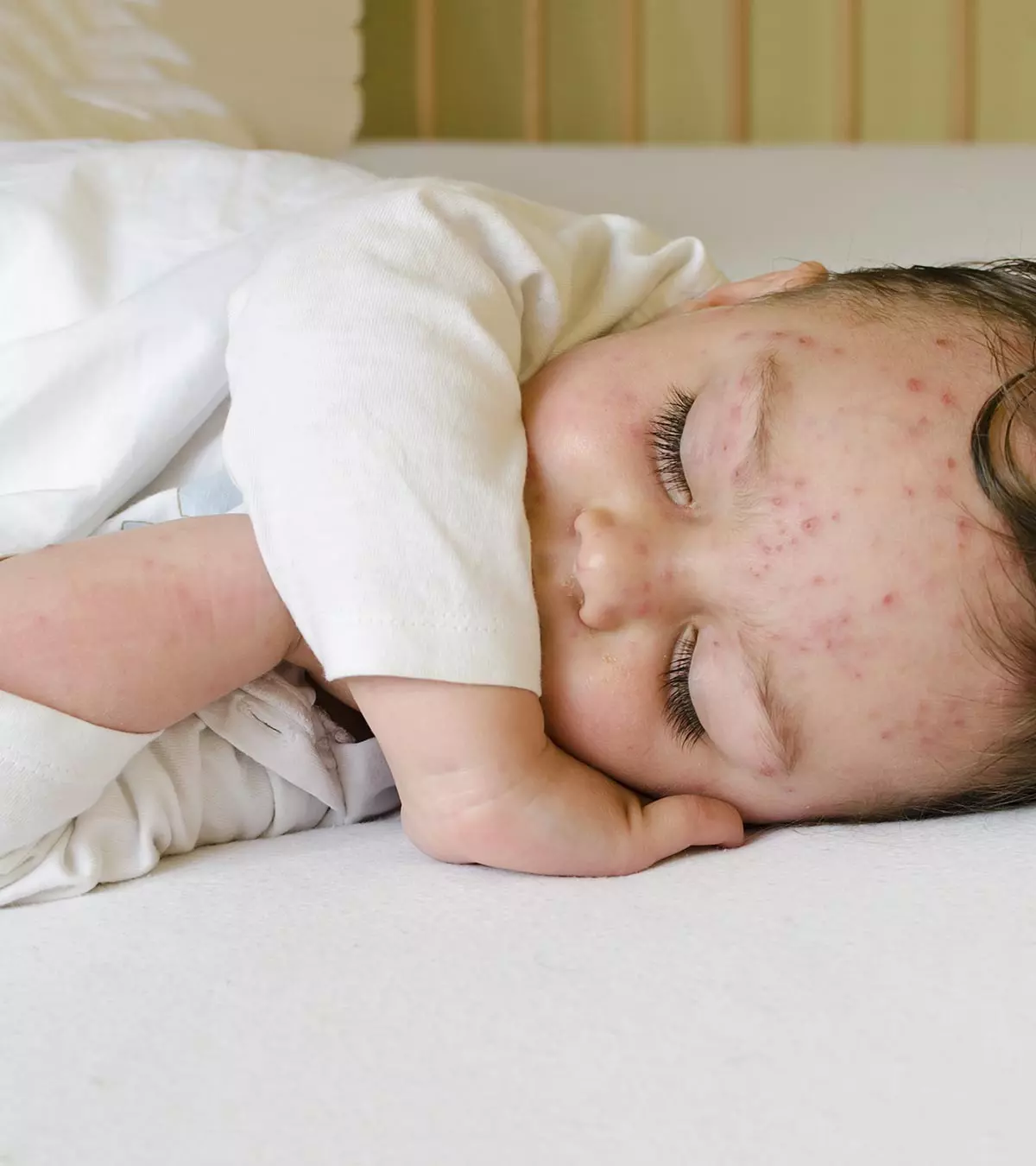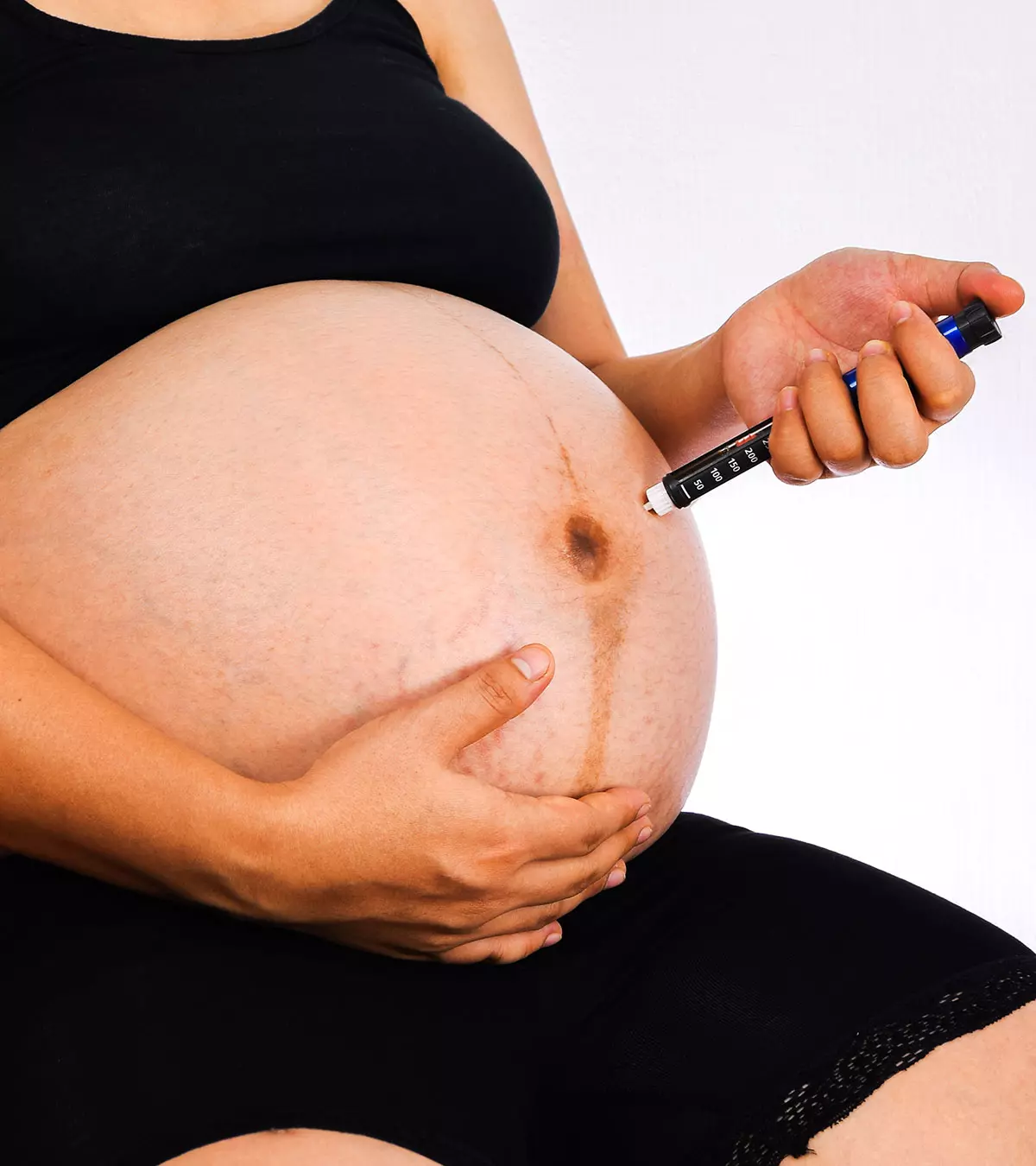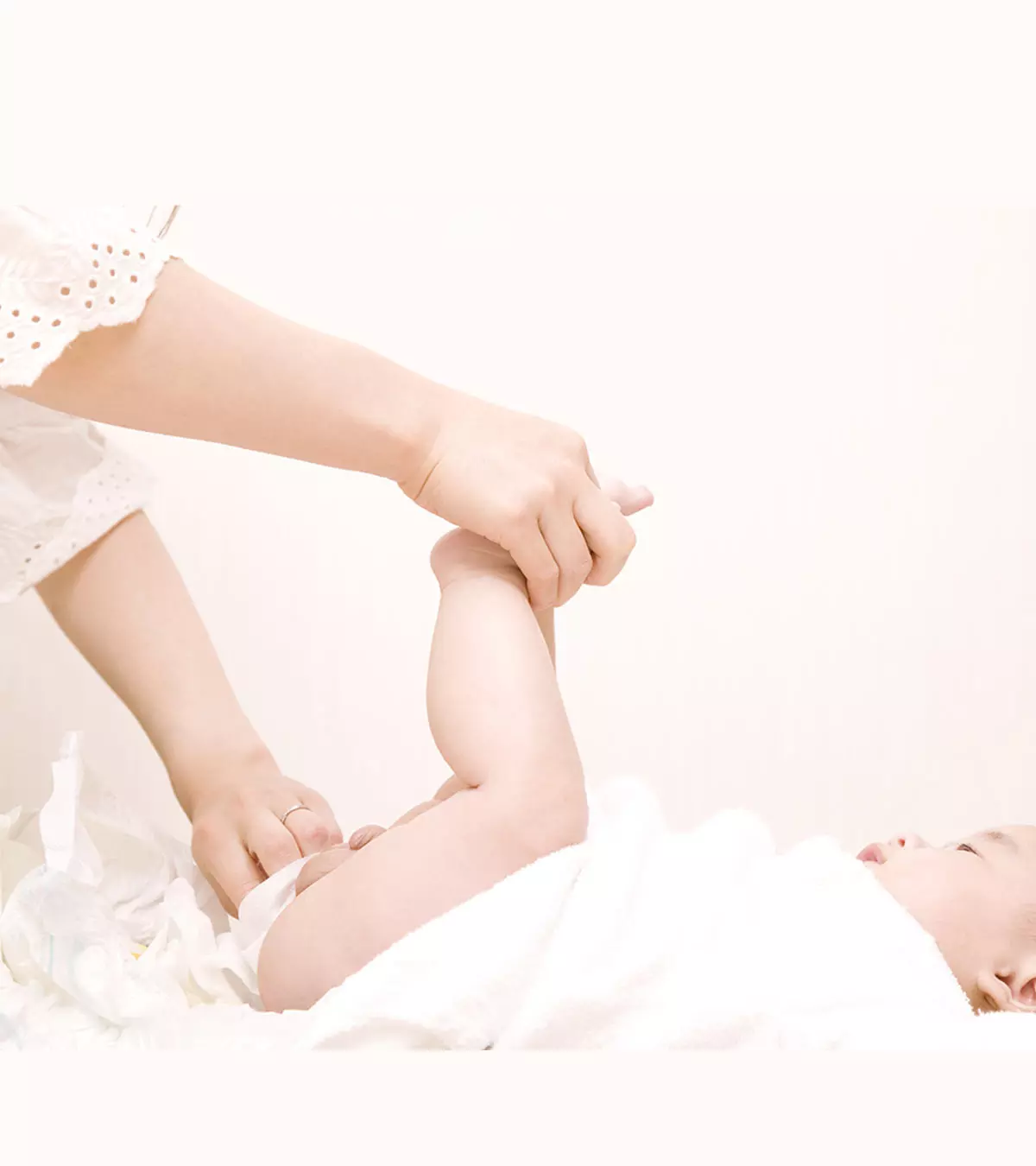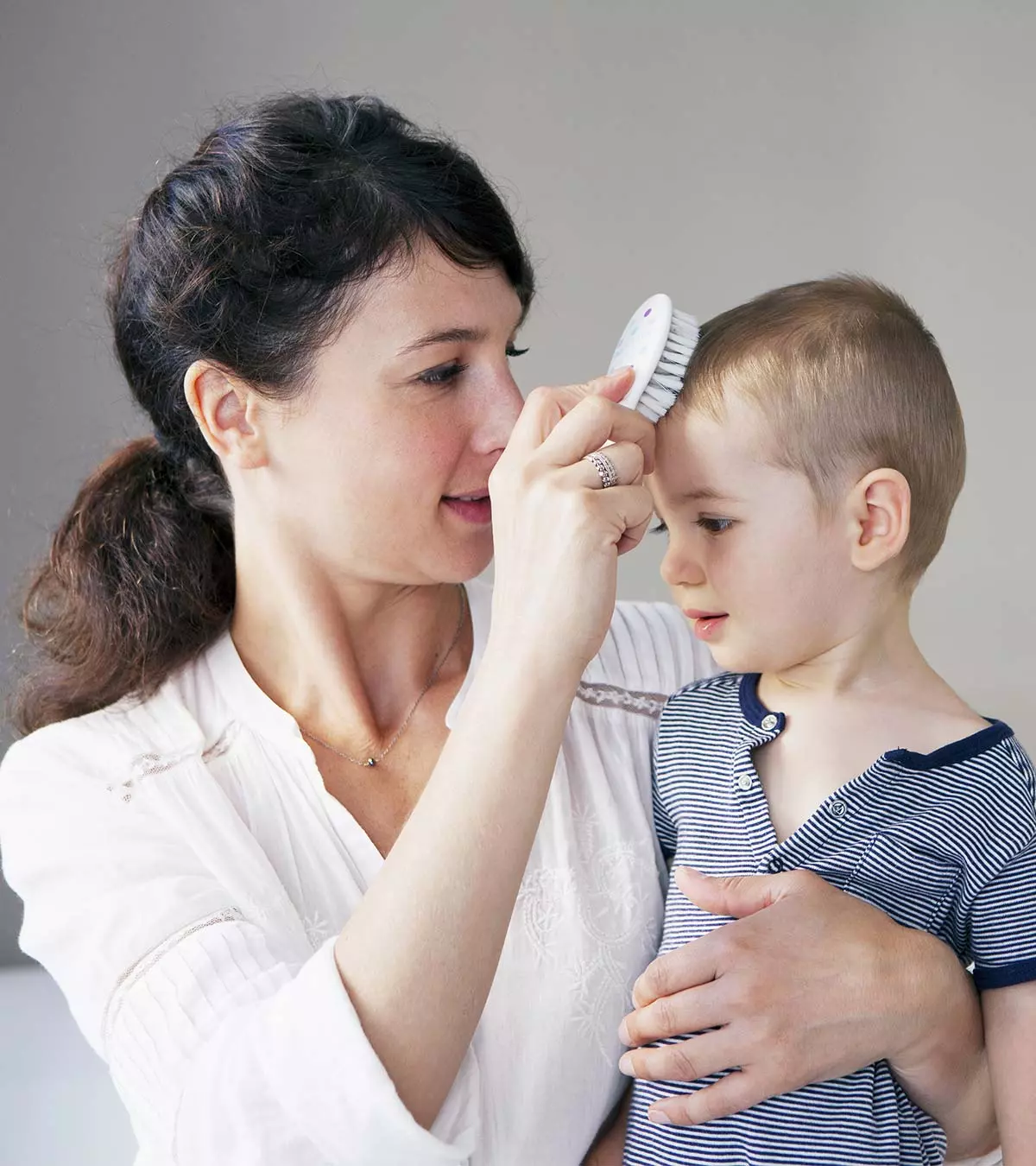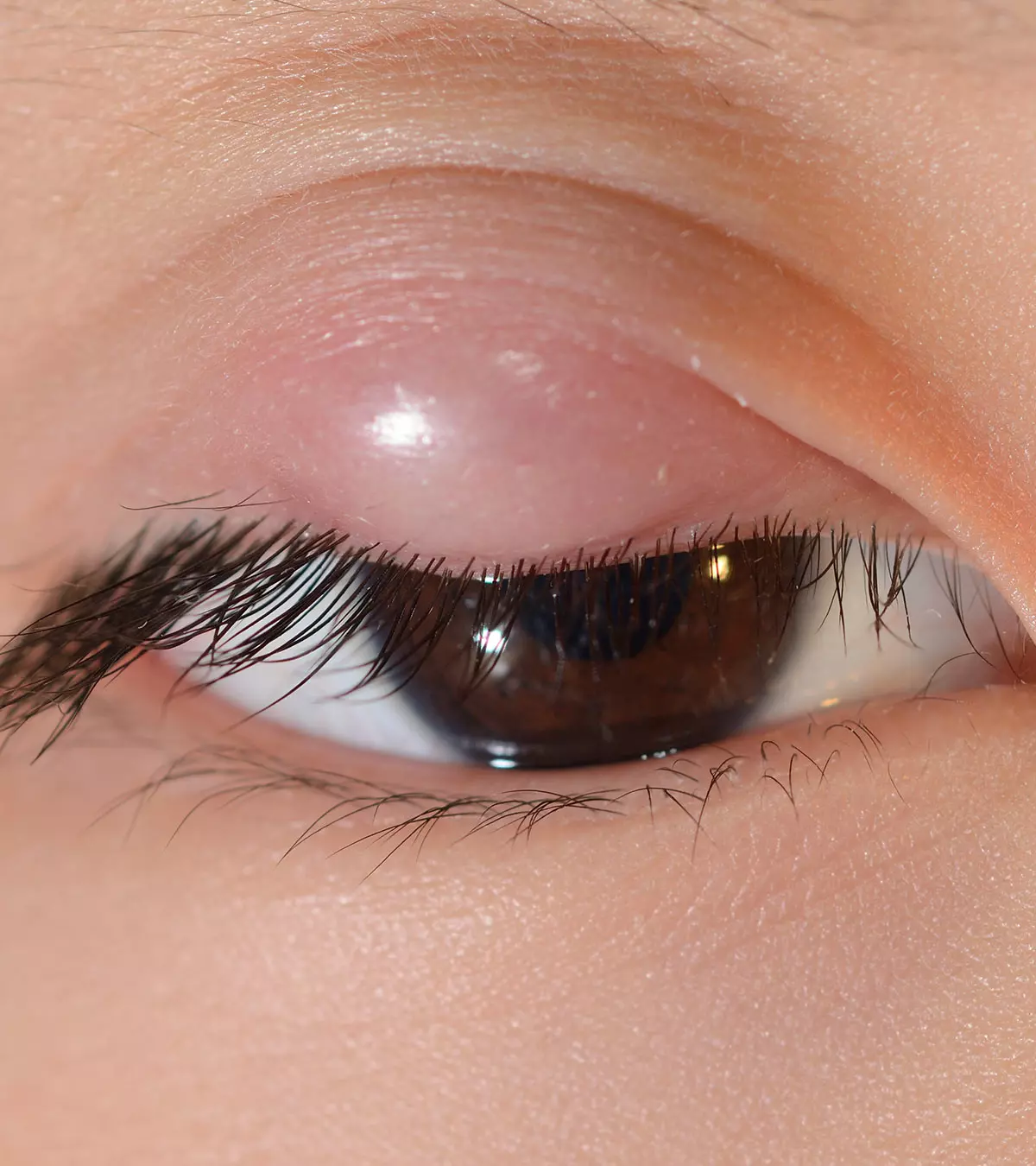
Image: ShutterStock

Calcium is an essential mineral responsible for the normal formation and functioning of the heart, nerves, bone, muscles, and teeth development (1). And, calcium deficiency in babies, termed hypocalcemia, might lead to complications in the growth and bone development of infants. Read more about the types, causes, symptoms, and treatment of hypocalcemia in babies.
Key Pointers
- Low oxygen availability during childbirth, maternal diabetes, excessive phosphate consumption from milk, and vitamin D deficiency can cause hypocalcemia.
- Symptoms include irritability, insomnia, poor feeding, lethargy, twitching, jerking movements, lowered heart rate, low blood pressure, and seizures.
- Early hypocalcemia can resolve on its own, but late hypocalcemia requires treatment with calcium supplements.
- Calcium-fortified bread and juice, canned fish, green leafy vegetables, and milk products can help increase calcium levels in the baby.
Types Of Hypocalcemia
Hypocalcemia is characterized by lower levels of calcium in the circulating blood. It is termed neonatal hypocalcemia in babies. Your baby can get it due to different causes and at different times. Neonatal hypocalcemia is classified into two types (2):
Early hypocalcemia
It happens in the first two to three days of a baby’s life and is most likely curable.
Late hypocalcemia
It starts in the first week or a few weeks after the baby’s birth and is less likely to disappear.
Causes Of Calcium Deficiency In Babies
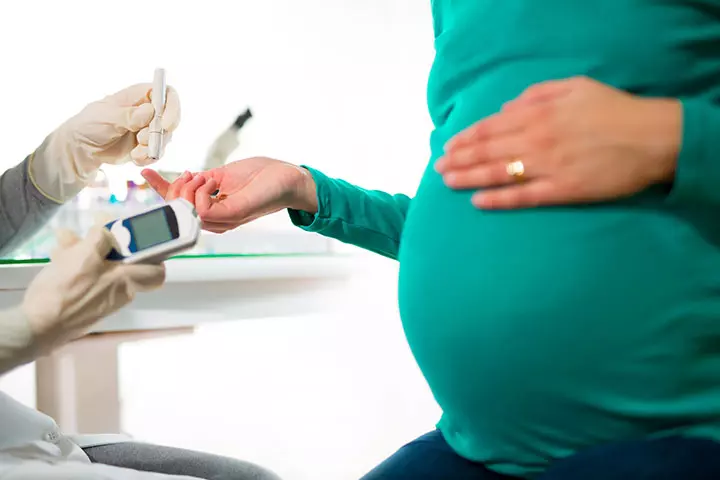
Image: IStock
A lack of adequate calcium in the diet can lead to calcium deficiency in adults. For babies, the causes can include the following (1) (3):
- Low oxygen availability during childbirth
- Maternal diabetes
- Poor nutrition during pregnancy
- Certain medicines such as Gentamicin
- Feeding your baby formula milk or cow’s milk with excessive phosphate.
- Vitamin D deficiencies since vitamin D promotes calcium absorption in the body.
 Point to consider
Point to consider- Certain infections
- Stress due to some severe illnesses
- Rare reasons such as DiGeorge Syndrome (DGS), a defect in chromosome no. 22.
- Congenital hypothyroidismiA condition in which the thyroid gland is absent or partially developed, causing low levels of thyroid hormone. in babies
- Low vitamin D or calcium in the mother
- Premature babies
- Underactive parathyroid glandsiLow production of parathyroid hormone causing decreased blood calcium levels and increased phosphorus levels in the body.
- Low magnesium levels
- Babies with kidney problems that can lead to kidney failure
 Things to know
Things to knowSymptoms Of Calcium Deficiency In Babies

Image: IStock
Babies exhibit several symptoms while suffering from calcium deficiency, which includes (1) (3)
- Irritability
- Insomnia
- Muscle cramps
- Muscle aches
- Jitteriness
- Tremors
- Poor feeding
- Lethargy
- Twitching
- Jerking movements of limbs
- Lowered heart rate
- Low blood pressure
- Seizures or convulsions due to a reduction in oxygen supply to the brain
Treating Calcium Deficiency In Neonates
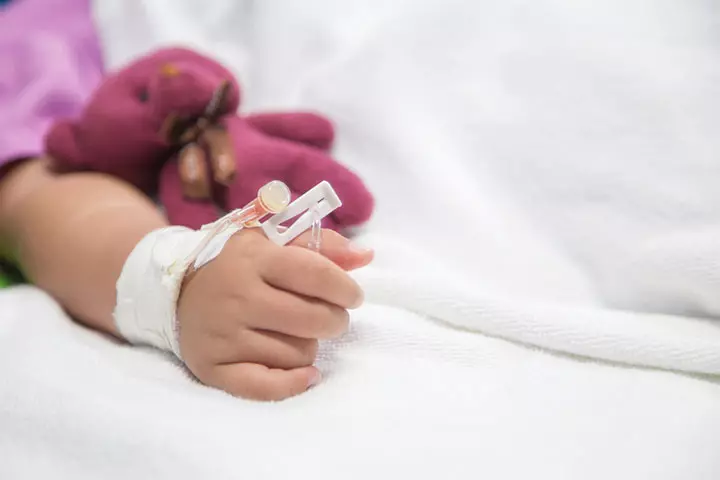
Image: Shutterstock
Early hypocalcemia usually resolves by itself without any intervention. However, in some cases, babies with late hypocalcemia may need calcium supplements in their feedings or via intravenous administration (IV) (3).
 Quick fact
Quick factBlood tests may be taken to determine the infant’s nutritional status. Then, the IV fluids administered may be tweaked accordingly to meet the infant’s needs in terms of essential nutrients such as magnesium, potassium, sodium, and calcium (4).
Frequently Asked Questions
1. How can I give my baby more calcium?
To ensure your baby gets enough calcium, you can include calcium-rich foods in your diet while breastfeeding. Once your baby is ready to eat solid foods, you can add these calcium-rich options to their diet (5):
- Dairy products such as cheese, yogurt, and puddings
- Calcium-fortified foods like bread and juice
- Canned fish, such as sardines, salmon, and anchovies
- Green leafy vegetables, including spinach, kale, and turnip greens
2. Which fruits are rich in calcium?
Not many fruits can be considered rich sources of calcium. Give your child calcium-fortified fruit juices to offer them the benefits of calcium (6).
3. Is banana rich in calcium?
Banana contains 12mg of calcium per 100g serving. Thus, it cannot be considered a rich source of calcium. However, it can help your child develop strong bones and muscles (7).
It is essential to consume calcium-rich foods during pregnancy to promote musculoskeletaliThe combination of bones, muscles, cartilage, ligaments, tendons, and their connective tissues. and nervous system health. Insufficient calcium during these critical periods may increase the risk of calcium deficiency in babies, potentially affecting their growth and overall health. Milk and milk products such as yogurt, kefir, and cheese are rich sources of calcium. Oranges, bok choy, dates, broccoli, almonds, tofu, dried figs, kale, and oatmeal are other calcium-rich foods you can incorporate into your pregnancy diet. You may take calcium supplements as per your doctor’s recommendations during pregnancy and breastfeeding even though calcium-rich foods are consumed. Not consuming enough calcium can also increase your risk of developing osteoporosisiA condition that weakens bones, increasing the chance of sudden, unsuspected bone fractures. later.
Infographic: How To Know A Baby Has Calcium Deficiency?
Maternal diabetes, certain medicines, low oxygen levels, infections or certain illnesses may cause calcium deficiency in babies. Though some babies with hypocalcemia may not show any symptoms, others may exhibit signs indicating a calcium deficiency. The infographic below helps to understand such signs and symptoms so that remedial measures may be taken at the earliest.
Some thing wrong with infographic shortcode. please verify shortcode syntaxIllustration: Calcium Deficiency In Babies - Causes Symptoms & Treatments
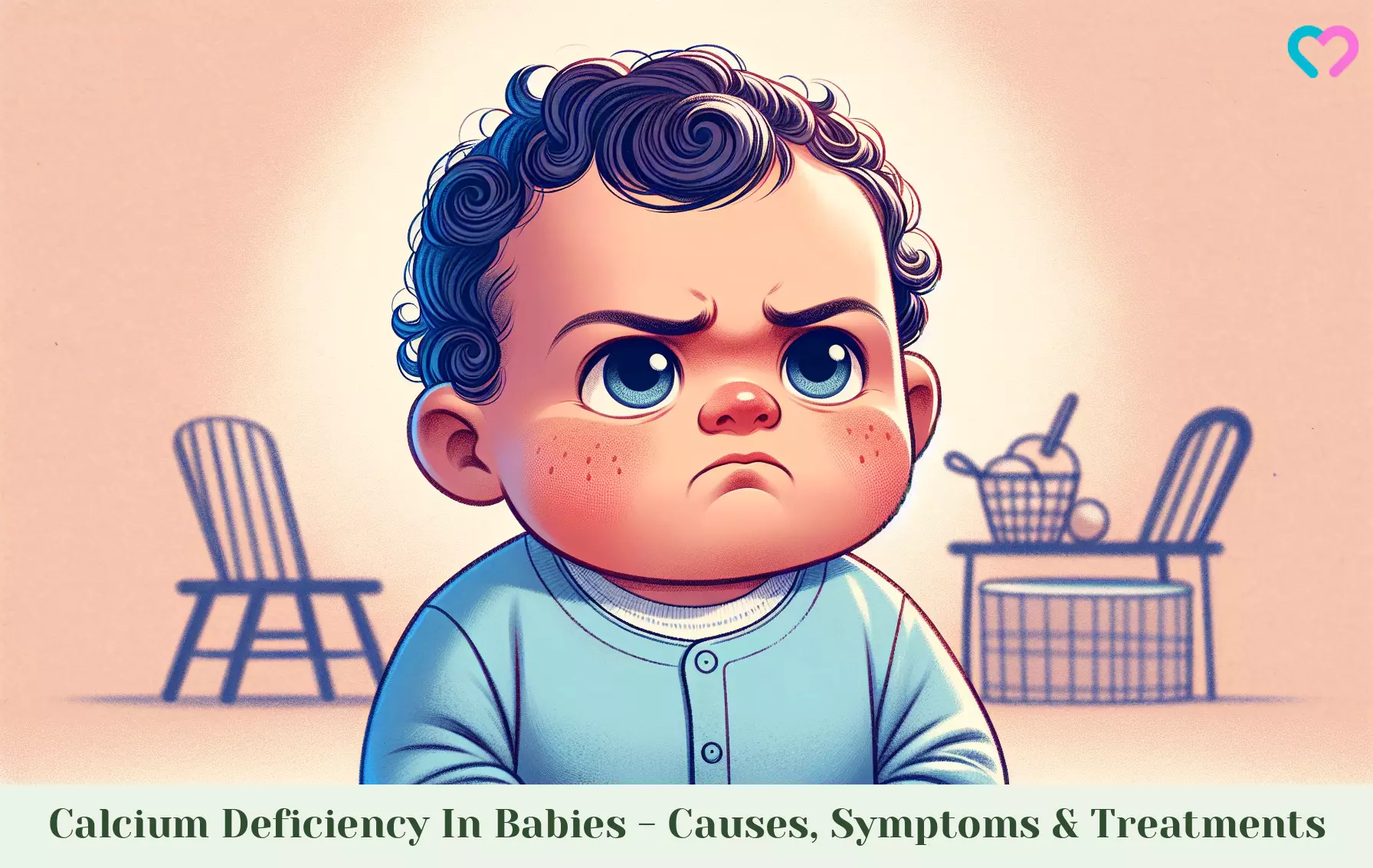
Image: Dall·E/MomJunction Design Team
References
- Low calcium level – infants.
https://medlineplus.gov/ency/article/007229.htm - Hypocalcemia in the Newborn.
https://www.stanfordchildrens.org/en/topic/default?id=hypocalcemia-90-P02376#:~:text=Hypocalcemia%20is%20more%20common%20inless%20calcium%20crossed%20the%20placenta - Hypocalcemia in the Newborn.
https://www.urmc.rochester.edu/encyclopedia/content?contenttypeid=90&contentid=p02376 - Hypocalcemia.
https://www.childrenshospital.org/conditions-and-treatments/conditions/h/hypocalcemia - Calcium: The Teen Bone Builder.
https://www.healthychildren.org/English/healthy-living/nutrition/Pages/calcium-the-bone-builder-kids-and-teens-need.aspx - 22 Calcium-Rich Foods
https://health.clevelandclinic.org/calcium-rich-foods - Calcium Content Of Common Foods
https://www.osteoporosis.foundation/patients/prevention/calcium-content-of-common-foods
Community Experiences
Join the conversation and become a part of our nurturing community! Share your stories, experiences, and insights to connect with fellow parents.
Read full bio of Dr. Neema Shrestha
Read full bio of Jessica Albert
Read full bio of Swati Patwal
Read full bio of Vidya Tadapatri







